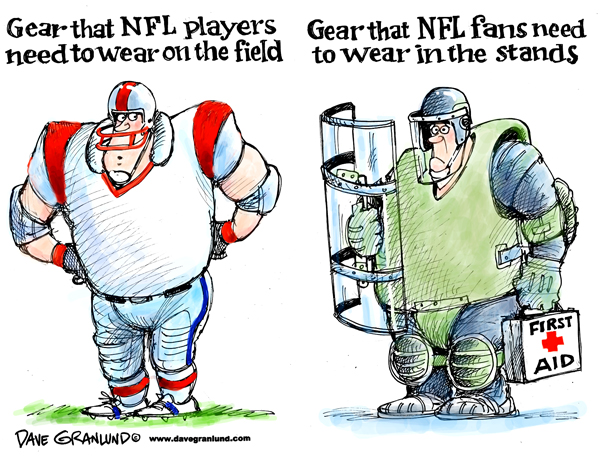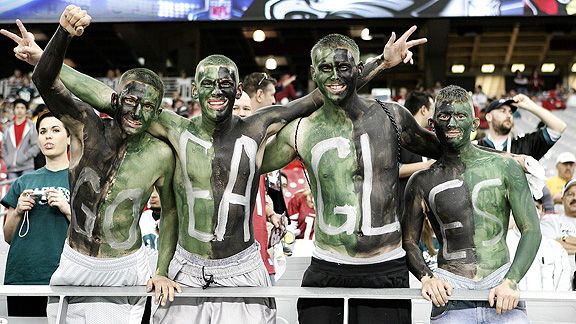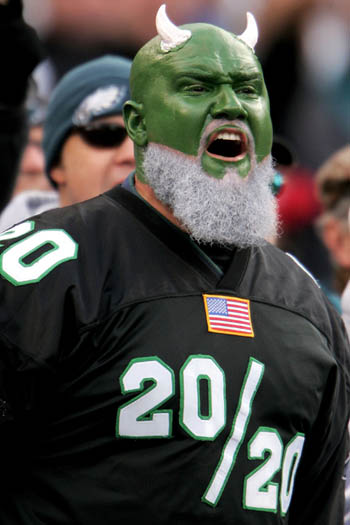| These identities often turn into rivalries and some are older and more intense than others. One example is the long standing rivalry between the Dallas Cowboys and the New Jersey Eagles.
The Dallas Cowboys and Philadelphia Eagles rivalry is one of the National Football League's well known and volatile rivalries.
The two teams have fan bases that emphatically support their teams and often fans have a true hatred of the other team. What
makes this rivalry more significant than other NFL rivalries?
Both teams claim to be more American and patriotic than the other and of course better and both utilize iconic symbols of America and liberty. The Dallas Cowboys were first referred to as
"America's Team" in 1978 in a highlight film of that season. The film editor chose to title the film "America's Team" after realizing
12 of the 16 games were televised and regardless of the city, Cowboys seemed to always have a supportive fan base (LaBlanc, 339).
Television's Neilsen ratings showed that the Cowboys games have more viewers than their opponents. Year after year the whether they
are winning or losing, the Cowboys' fans are always watching (LaBlanc, 328). The Eagles take claim on being America's Team and being the city of brotherly love and the home of the Declaration of Independence.
The Eagles are notorious for their aggressive no holds barred approach to fanaticism. When Eagles are upset, they will voice their
frustrations at whoever is the source of the distress. It is common for Eagle fans to cheer their quarterback one moment and jeer him
the next if they are unhappy with his performance (LaBlanc, 375). They are consistently ranked the NFL's most loyal fans and in 1994
the Eagles were the single most profitable franchise financially in the NFL. Since then, the Cowboys have surpassed the Eagles and are
now ranked number one as most valuable NFL team by Forbes, while the Eagles are ranked seventh. These repeated images of division amongst teams,
and expressions of aggression and war like body paint and cheering become iconic images of the
sports fanatic. Fans of each team generally hate fans of the other based solely on the premise that they support the opposing team. Group identification can be so important to some people that any threat to their group is likely to elicit a strong reaction.
|



